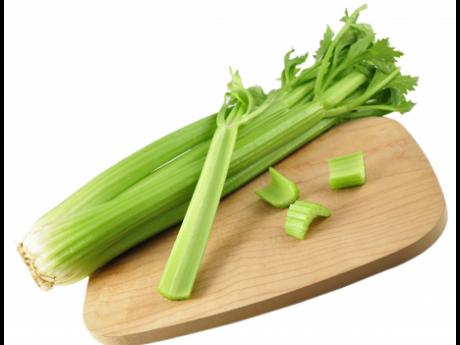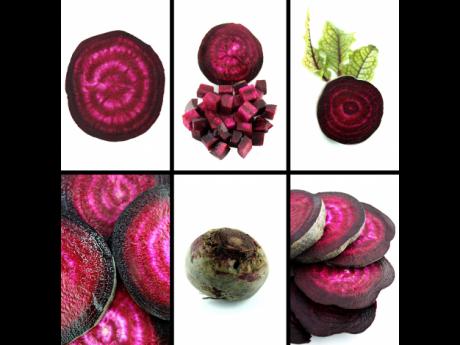Tony Vendryes: Cleansing after FEASTING
By the end of the festive season, most of us would have done our fair share of feasting, but the heavy consumption of food and drink can take its toll on our bodies. It would be healthy to consider doing some detoxification and cleansing at the very start of the year. This would be a great way to focus on our health and well-being for 2016. Juicing is a wonderful way to begin, and here is a great detox recipe.
Detox juicing
If at all possible, choose fresh, organic sources of the ingredients listed below to make a powerful cleansing and health-promoting drink.
- One small or medium beet
- Five medium carrots
- Three to four fresh celery stalks
- Optional - add 1/2 of an apple.
Use a blender, or preferably a juice extractor, to make the juice and drink it one to three times daily. Ideally, this should be consumed as soon as possible after it is made. Otherwise, cover and store the juice in the refrigerator until it can be drunk. Each ingredient has specific benefits.
Beet for the liver
Beet (Beta vulgaris), or beetroot (as it is called in Jamaica), contains the minerals potassium, sodium, calcium, phosphorus, iron, and the vitamins A, C, and B complex. Other components include betaine, amino acids, fruit acids, and sugars.
Beet, with its betaine, strongly protects and regenerates the liver while stimulating the production and release of bile. European doctors have successfully used beet in the treatment of the inflamed or infected liver. Beet is one of the most powerful liver detoxifying plants as it rapidly flushes the liver, while the betaine fuels the liver's detoxification process through a process called methylation. The body uses methylation to detoxify powerful natural compounds like adrenaline and histamine along with many commonly prescribed drugs.
Caution: Concentrated beet juice has powerful effects and should be diluted with other juices. Start with one small beet per glass of juice and later increase to a medium-sized beet. Beet juice gives both urine and stool a reddish colour, and this should not be mistaken for bleeding.
Celery for the kidneys
Celery (Apium graveolens) contains a similar range of vitamins and minerals as beet.
But celery's major cleansing action is from its effects on the kidneys. It helps to remove toxins from the body by enhancing kidney function and urine flow. Celery is to the kidney what beet is to the liver.
A primary function of the kidney is to filter and purify the blood while controlling the body's balance of fluids and salts. Celery greatly supports this function. It is a specific kidney tonic with antimicrobial, anti-inflammatory, and antispasmodic effects on the urinary passage while reducing kidney stone formation and increasing urine flow (a diuretic action).
Celery also contains two specific compounds that lower blood pressure. Three to four celery stalks will supply enough to reduce your blood pressure. Celery also contains several other compounds that act like the calcium-channel blocking drugs used to treat hypertension and heart disease.
Studies have shown celery juice to lower both blood cholesterol and uric acid levels. Compounds similar in structure to testosterone have also been found in celery at moderately high levels and may explain why celery has traditionally been used as a sexual tonic for men.
Warning: Large doses of fresh celery juice may cause a slight numbing of the tongue and is contraindicated in serious kidney disease.
Carrots for the immune system
Carrots (Daucus carota) are members of the same family as celery and possess a range of similar vitamins and minerals and have many of the same actions.
In addition, carrot roots are extremely high in a family of nutrients called carotenoids (including beta-carotene), which give carrots their orange colour.
Scores of studies show that carotenoids help prevent the three Cs: cancer, cardiovascular disease, and cataracts.
A Harvard University study showed that 50mg of carotenoids (found in the juice of about seven carrots) every other day significantly reduces the risks of these three diseases.
Research on carotenes shows that they possess high antioxidant activity. In fact, Beta-carotene is a provitamin as the body converts it into the powerful antioxidant vitamin A. They protect and enhance the function of the thymus gland, which is vital for a strong immune system. Studies have found that even 15mg per day of beta-carotene significantly improves immune function, especially if those 15mg come from the ingestion of carrots.
The carotenoids also help in the treatment and prevention of asthma and other allergic respiratory problems. They are also extremely important in maintaining and restoring healthy eye function. Carrots help improve vision partly because the carotenes strongly support the macula of the eye and can even help prevent macular degeneration with regular use. The central part of the macula is yellow in colour, mainly from the high concentration there of two yellow carotenes: lutein and zeaxanthine.
Eat light
In addition to having the detox drink one to three times per day for up to seven days, you should also drink lots of spring water, coconut water, herbal teas, soy shakes, fresh fruit juices, and vegetable and miso soups. Eat salads, fruits, nuts, steamed vegetables. steamed fish, and brown rice.
For optimal results, find time for rest, relaxation, and adequate sleep.
I wish for all our readers a healthy, happy, and prosperous 2016.
- You may email Dr Vendryes at tonyvendryes@gmail.com or listen to An Ounce of Prevention on POWER106FM on Fridays at 8:15 p.m. Details of his books and articles are available at www.tonyvendryes.com.



